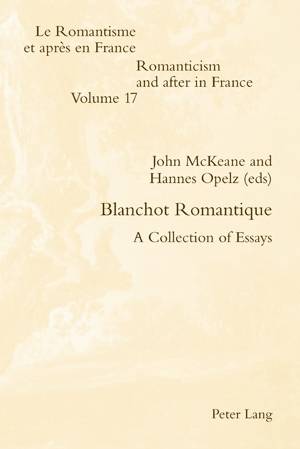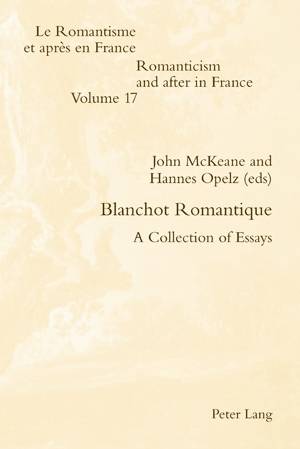
Bedankt voor het vertrouwen het afgelopen jaar! Om jou te bedanken bieden we GRATIS verzending (in België) aan op alles gedurende de hele maand januari.
- Afhalen na 1 uur in een winkel met voorraad
- In januari gratis thuislevering in België
- Ruim aanbod met 7 miljoen producten
Bedankt voor het vertrouwen het afgelopen jaar! Om jou te bedanken bieden we GRATIS verzending (in België) aan op alles gedurende de hele maand januari.
- Afhalen na 1 uur in een winkel met voorraad
- In januari gratis thuislevering in België
- Ruim aanbod met 7 miljoen producten
Zoeken
Blanchot Romantique
A Collection of Essays
€ 97,45
+ 194 punten
Omschrijving
The work of French writer and essayist Maurice Blanchot (1907-2003) is without doubt among the most challenging the twentieth century has to offer. Contemporary debate in literature, philosophy, and politics has yet to fully acknowledge its discreet but enduring impact. Arising from a conference that took place in Oxford in 2009, this book sets itself a simple, if daunting, task: that of measuring the impact and responding to the challenge of Blanchot's work by addressing its engagement with the Romantic legacy, in particular (but not only) that of the Jena Romantics. Drawing upon a wide range of philosophers and poets associated directly or indirectly with German Romanticism (Kant, Fichte, Goethe, Jean Paul, Novalis, the Schlegels, Hölderlin), the authors of this volume explore how Blanchot's fictional, critical, and fragmentary texts rewrite and rethink the Romantic demand in relation to questions of criticism and reflexivity, irony and subjectivity, narrative and genre, the sublime and the neutre, the Work and the fragment, quotation and translation. Reading Blanchot with or against key twentieth-century thinkers (Benjamin, Foucault, de Man), they also examine Romantic and post-Romantic notions of history, imagination, literary theory, melancholy, affect, love, revolution, community, and other central themes that Blanchot's writings deploy across the century from Jean-Paul Sartre to Jean-Luc Nancy. This book contains contributions in both English and French.
Specificaties
Betrokkenen
- Uitgeverij:
Inhoud
- Aantal bladzijden:
- 322
- Taal:
- Engels
- Reeks:
- Reeksnummer:
- nr. 17
Eigenschappen
- Productcode (EAN):
- 9783039119738
- Verschijningsdatum:
- 10/11/2010
- Uitvoering:
- Paperback
- Formaat:
- Trade paperback (VS)
- Afmetingen:
- 148 mm x 210 mm
- Gewicht:
- 399 g

Alleen bij Standaard Boekhandel
+ 194 punten op je klantenkaart van Standaard Boekhandel
Beoordelingen
We publiceren alleen reviews die voldoen aan de voorwaarden voor reviews. Bekijk onze voorwaarden voor reviews.








